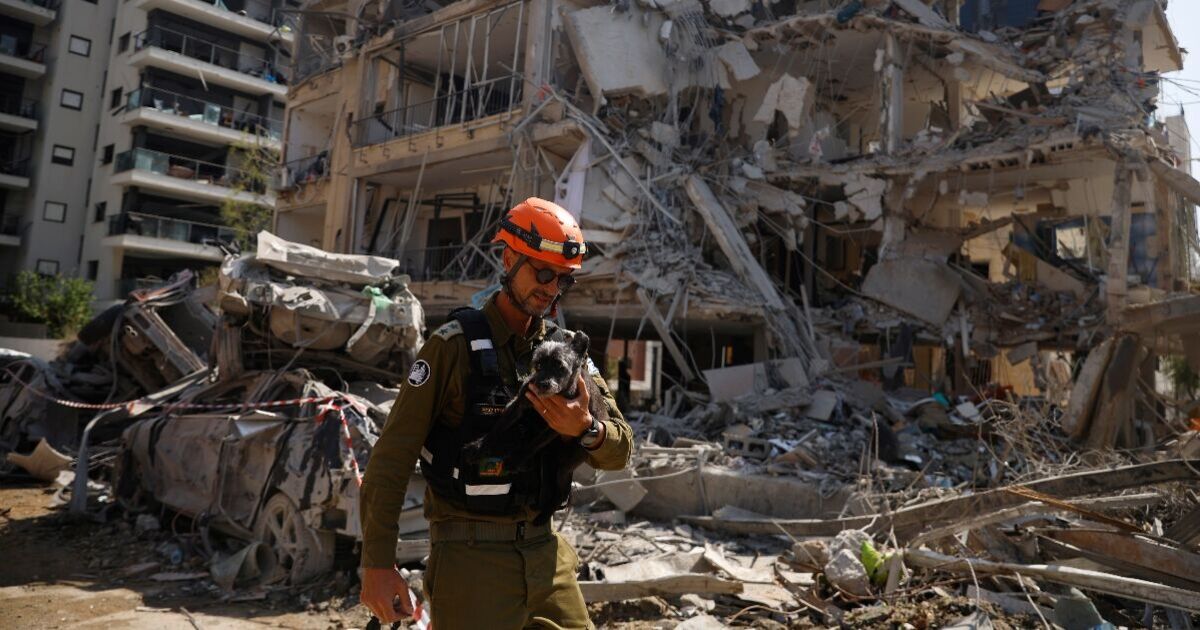Brits have been warned against travelling to Israel amid fears of an all-out war with Iran. In its latest travel advice, the Foreign Office advises against all but essential travel to the country. It comes after Tel Aviv targeted Iran with a series of missile strikes and Tehran retaliated overnight. Explaining its advice, the Foreign Office pointed to the nationwide state of emergency declared in Israel and the Israeli strikes against nuclear and military facilities in Iran. It added: “The situation could escalate quickly and could pose significant risks, including missile fire.”
After convening a Cobra meeting of senior ministers and officials, Sir Keir spoke to Mr Netanyahu, urging him to de-escalate and work towards a “diplomatic resolution”. Prime Minister Sir Keir Starmer and US President Donald Trump agreed the burgeoning conflict needed to be resolved by “diplomacy and dialogue”. Sir Keir joined France’s Emmanuel Macron and Germany’s Friedrich Merz who have called for restraint. David Lammy, the Foreign Secretary, spoke to Iran’s foreign minister and urged calm, later warning the Middle East is facing a “moment of grave peril “.
Iran launched waves of drones and ballistic missiles at Israel, where explosions lit the night skies over Jerusalem and Tel Aviv overnight.
The Israeli military urged civilians to head to shelter for hours. At least three people in Israel were killed and dozens of others injured.
Meanwhile, the sound of explosions and Iranian air defence systems firing at targets echoed across central Tehran just after midnight on Saturday (June 14).
Israel‘s ongoing airstrikes and Iran’s retaliation have raised concerns about an all-out war between the countries and propelled the Middle East into even greater upheaval.
The attacks between Israel and Iran disrupted travel through the Middle East, which is a key global aviation route.
Jordan’s state-run Petra news agency said the country would reopen its airspace to civilian aircraft at 7.30am local time on Saturday, signalling it belief there was no immediate danger. Lebanon also reopened its airspace, according to state news agency NNA.
Israel‘s Prime Minister Benjamin Netanyahu said the attack on Friday had been months in the making and was planned for April before being postponed.
The Mossad spy agency is understood to have positioned explosive drones and precision weapons inside Iran ahead of Friday’s attack, using them to target Iranian air defences and missile launchers near Tehran.
Over the past year, Israel has been targeting Iran’s air defences, hitting a radar system for a Russian-made air defence battery in April last year. Surface-to-air missile sites and missile manufacturing facilities were hit in October.
The first wave of strikes gave Israel significant freedom of movement in Iran’s skies, clearing the way for further attacks, according to an Israeli military official who spoke on condition of anonymity because he was not authorised to discuss details of Friday’s attack with the media.
The official said Israel is prepared for an operation which could last up to two weeks, but there was no firm timetable.
